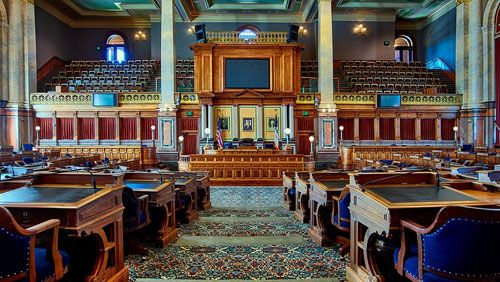Florida State House and Senate leaders continue to discuss gambling legislation that will open the door to sports betting. However, these meetings are going on despite the absence of members of the Seminole Tribe of Florida.
For five years, state lawmakers have grappled with increasing legal gambling within the state. They have had little success to this point, but Senate President Bill Galvano seems cautiously optimistic that this year could be different, although he cautions state residents to not get too excited. “It’s premature to believe that there is a negotiated deal between the chambers. That has not occurred yet.”
Sen. Galvano has been actively meeting with House Speaker Jose Oliva as well as with Sen. Travis Hutson and Rep. Mike LaRosa to discuss a new bill. According to Sen. Hutson, negotiations reached a positive tipping point last spring when a plan was solidified by the Seminole tribe.
“There has been nothing inked in pen or put in writing that we’ve agreed to. But we do feel like we’ve moved a lot closer towards being able to say that we’re in lockstep and key, and then we will go see the governor. But at this time, we’re not there,” Hutson said.
Sen. Wilton Simpson and Sen. Hutson reached an agreement with the Seminole tribe last year after Ron DeSantos became governor of Florida. He had initially rejected a plan between the two parties but has seemed to be more amenable to the currently proposed agreement which opens the door for sports betting to be legalized at the tribe’s casinos, as well as non-tribal horse and dog tracks and jai alai frontons, with the tribe serving as a ‘hub.’
By including the Seminole Indians in the deal, the legislation would appear to bypass a constitutional amendment that was passed in 2018. This amendment required that voters would have to authorize casino-style gambling, but that amendment did not extend to tribal property.
The sticking point to the whole deal appears to be the offering of “designated player” card games at card rooms in Miami-Dade and Broward Counties. In these counties, slot machines are not authorized, but these designated player games have become a major source of revenue as well as provided for thousands of jobs.
The Seminole tribe has already filed suit in federal court, claiming that the card games violate the 2010 gambling agreement which gives the tribe full exclusivity to offer card games such as blackjack. A federal judge has agreed, but the matter is still on appeal.
With that disagreemnt still out there, the tribe is still unwilling to join in recent meeting between House and Senate leaders, and it is not known when they may return to the table.
